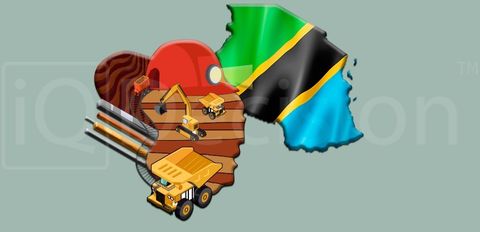In an effort to provide employment to Tanzania’s citizens & ensure protection of the country’s natural resources, the Tanzanian Parliament passed the 2017 Mining Law. However, soon after its enactment, foreign entrepreneurs seeking to open a mining company in the United Republic of Tanzania began to report compliance -related problems. They were particularly concerned about the size of FCI, prohibition on the settlement of mining disputes in the United Republic of Tanzania in foreign tribunals & a requirement to comply with local regulations.
FCI
Because FCI is applied selectively, its implementation has impacted less than one percent of mining enterprises in the United Republic of Tanzania. However, its non-enforcement has caused foreign investors planning to obtain a mining permit in the United Republic of Tanzania to raise concerns about:
- FCI (a date declared by the government doesn’t match the date the law came into effect);
- procedure for increasing stock capital,
- transferring FCI matching the legally established threshold.
Before the Mining Law was enacted, those concluding mining agreements in the United Republic of Tanzania were at liberty to select laws regulating such activities & ways of settling mining disputes in the United Republic of Tanzania. After the law was adopted, a ban was imposed on the settlement of international mining-related disputes in the United Republic of Tanzania via arbitral tribunals non-registered in the United Republic of Tanzania.
How the Law Affected Mining Companies
The majority of MDAs concluded before the adoption of the law had clauses allowing for settlement of disputes in Singapore or Great Britain . By imposing a ban on the settlement of disputes via foreign tribunals in the United Republic of Tanzania the government has made stakeholders raise concerns about MDAs’ profitability. To address them, the Tanzanian government has taken some steps, which included the adoption of the 2020 Arbitration Act.
Requirement for Local Content
Those planning to obtain a permit for mineral exploration in Tanzania should keep in mind the requirement for local content. The recent amendments to the 2017 Mining Act resulted in the introduction of the following requirements:
- compliance with a requirement for local content;
- preparation of a 5-year plan for local content;
- registration of a JV in the United Republic of Tanzania in which a share of a local company will be at least twenty percent;
- development & implementation of a process favoring local companies & providing a way to evaluate proposals received;
- notification of contracts or purchase orders exceeding one hundred thousand dollars;
- obtaining approval for receiving financial services from foreign entities.
Those interested in starting a mining business in Tanzania should keep in mind that the adoption of the 2017 Mining Law didn’t significantly affect companies operating in other countries in Africa. However, because investors are now required to register a Tanzanian company & transfer twenty percent of its capital to indigenous peoples, they’re facing some serious problems:
- Tanzania doesn't produce mining equipment & depends on foreign suppliers for it; however, the majority of mining equipment suppliers have no license in the United Republic of Tanzania;
- investors only have 3 months to meet the requirement;
- not all companies operating on the Tanzanian market have the necessary amount of capital to set up a JV in the United Republic of Tanzania with current suppliers.
Considering getting a mining permit in the United Republic of Tanzania? Need advice on mining regulation in the United Republic of Tanzania? Why not contact IQ Decision UK?











